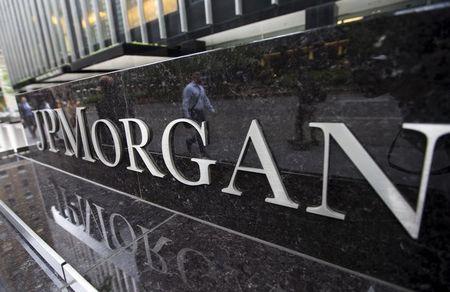JP Morgan added Nigeria’s 2014, 2019 and 2022 bonds to the JP Morgan Government Bond Index-Emerging Market in October 2012.
By this addition, Nigeria was able to attract up to $1.5 billion in portfolio inflows and gain valuable exposure to offshore investors. As at 2014, Nigeria had about $13.billion trading on the JP Morgan Index. Yesterday, JP Morgan announced it will take Nigeria of the index by October 2015 citing difficulties with meeting complex foreign exchange rules.
Some background
First of most government borrow, locally and internationally.
When a Government borrows, it issues a bond to its investors, if more investors want to buy a particular Governments bond, the interest the Government pays to the investors as expressed as the coupon falls, if your bonds are not being bought, you increase the coupon rate to attract investors.
For example, USA Bonds maturing in year 2020 have a coupon (what you get as interest) of 1.375, Greek bonds maturing in 2019 have a higher coupon of 4.750 why? Everyone want to buy USA Bonds hence the US can offer a lower rate, Greece is much more risky then America so the Greeks have to offer higher coupons than the Americans.
What’s the JP Morgan Government Bond Index-Emerging Market Index
So what is the JP Morgan GB Index? Well it’s an index but look at it as a mall, an exclusive mall that sells only government bonds. In Africa, only Nigeria and South Africa were in that index.Why do retailers go to a mall? Visibility, convenience, safety. If you’re in a mall, shoppers see you and buy from you.
What’s the benefit of being in the Index?
- if Nigeria is in the JP Morgan Index (mall) our bonds are available to more investors, more investors (shoppers) see our bonds and can buy,
- A lot bond purchases are done via index selection, our bonds are thus purchased by default thus dropping the cost of borrowing internationally.
As a practical example….when JP Morgan announced in Aug 21 2014, that Nigeria’s 2024 bond will be included in Government Bond Index, Nigerian bond yields fell (a good thing) with our benchmark 10-year bond yield slipping 22 basis points.
If we are out of the index, what happens?
- If we are out, it send a signal, we are no longer in the “mall”, and maybe our “product” is bad, perception.
- Not a lot of investors will see our bonds, so they can’t buy our bonds
- Those foreign investors holding our bond may sell, thus our bond yields will rise, making the cost of FGN borrowing higher
So what’s the Impact?
Let’s assume to plug this international gap, Nigeria will has to borrow locally. to do this, Nigeria will enter the local bond market. once an rational investor sees the Nigeria’s bond in the local market, he will go for it if the yield is ok, thus it mean the private corporate bonds will have to raise rates to entice investors to buy their own paper, so cost of borrowing will rise for the private sector.
Ø This means cost of money for the private sector as expressed as the interest rate may rise. The private sector will simply pas on this increased cost of bowing to the consumers…
Ø As interest rates rise, if you borrow, or owe on your credit card, you will pay more.
Ø As interest rates rise, the stock market will fall, the value of the naira will be impaired, interest rates rising also feed into inflation, thus inflation may rise.
Inflation rising is what we should fear…..
Nigeria is a big market, and we can raise foreign capital without being on the JP Morgan, but this sends a signal to international investors, a bad signal.
Now this is not set in stone, the FGN can take corrective action, but it must be a combination of monetary (CBN) and Fiscal (Ministry of Finance) moves. The corrective action is not just to get back to the index but to respond to clear macroeconomic headwinds blowing our way
…..time to wake up…
It’s our problem, we can fix it
(photo credit: Africa ME)
